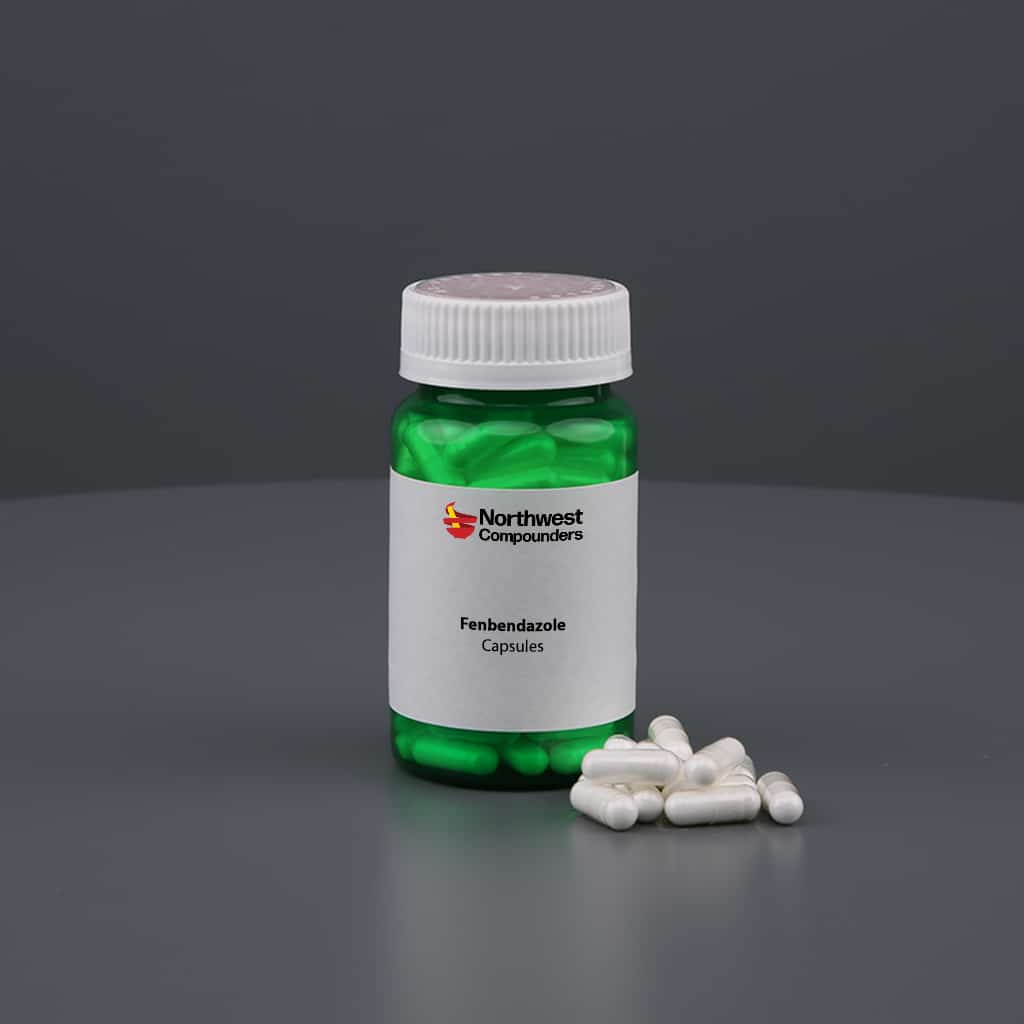fenbendazole capsules: Safe Options for Parasite Control
Wiki Article
Understanding the Conveniences and Uses of Fenbendazole in Veterinary Medicine
Fenbendazole has developed itself as a vital anthelmintic in vet medicine. Its capacity to target different parasitic infections makes it an important tool for vets. The medicine's mechanism interrupts necessary cellular procedures in parasites, causing efficient therapy results. Its safety and security profile varies in between types, demanding careful consideration in its use (fenbendazole 444). Comprehending these characteristics can clarify fenbendazole's more comprehensive effects in veterinary care and continuous study right into its possible beyond traditional applicationsMechanism of Action of Fenbendazole

Common Parasitic Infections Treated With Fenbendazole
A variety of parasitical infections are properly treated with fenbendazole, making it a versatile choice in vet medicine. This anthelmintic representative is especially reliable against nematodes, including roundworms and hookworms, which commonly influence pet dogs and felines. It is additionally used for the treatment of cestodes, such as tapeworms, supplying a broad spectrum of action versus both kinds of intestinal tract parasites. In addition, fenbendazole is useful in handling infections brought on by protozoa, particularly Giardia, which can bring about intestinal distress in animals. Its efficacy extends to treating certain lungworms in dogs and felines, attending to respiratory system health and wellness worries connected to these bloodsuckers. In general, fenbendazole's capacity to target numerous parasitical species makes it a beneficial tool in vet practice, making certain the health and wellness and health of animals affected by these typical infections.Safety and security and Efficiency in Different Animal Species
The security and efficacy of fenbendazole vary among different animal species, highlighting the relevance of species-specific considerations in vet medicine. In pooches, fenbendazole is normally well-tolerated and reliable against a variety of gastrointestinal parasites, consisting of roundworms and hookworms. For felines, however, its use is less common and might require cautious application as a result of potential adverse responses.In livestock, such as livestock and lamb, fenbendazole shows performance against various endoparasites, adding to boosted wellness and performance. Nevertheless, the pharmacokinetics and possible side results can differ markedly in between species, necessitating cautious assessment by vets.
Horses likewise respond positively to fenbendazole, especially for dealing with strongyles and ascarids, though dosage and administration routes must be customized to their distinct physiology. Recognizing these distinctions is important for maximizing therapy outcomes and making certain pet welfare across diverse types.
Administration and Dose Guidelines
Appropriate administration and dosage guidelines are vital for making the most of the healing effects of fenbendazole while decreasing prospective adverse effects. The dose typically varies depending on the species being treated, my review here the details problem, and the formula of fenbendazole used. fenbendazole 222. For canines and pet cats, a common dosage is 50 mg/kg body weight, administered daily for three consecutive days, however veterinarians might readjust this based upon individual health assessmentsIt is necessary to provide fenbendazole with food to enhance absorption and lessen intestinal trouble. The medication is available in various types, consisting of granules and paste, enabling versatile management choices. Keeping track of the animal's response throughout and after therapy is advisable to confirm efficacy and safety. Additionally, vet advice is crucial to figure out the proper period of treatment based on the type of parasitic infection being addressed, guaranteeing perfect results for the pet's wellness.
Future Perspectives and Study on Fenbendazole
Study on fenbendazole proceeds to advance, focusing on its prospective applications past conventional antiparasitic usages. Recent studies have discovered its performance in dealing with various types of cancer cells, specifically in vet oncology. Initial information recommend that fenbendazole may prevent the growth of growth cells and enhance the results of other chemotherapeutic agents.Researchers are investigating its function in taking care of gastrointestinal conditions in animals, highlighting its anti-inflammatory residential or commercial properties. The versatility of fenbendazole for various types questions concerning its security accounts and excellent application regimens in diverse populaces.
As interest grows, there is a need for complete clinical tests to establish evidence-based guidelines for these unique applications. Future study might additionally check out the systems behind fenbendazole's impacts, possibly paving the method for cutting-edge restorative approaches in vet medication. The continuous exploration of fenbendazole might substantially boost therapy options for numerous veterinary conditions.

Frequently Asked Concerns
Is Fenbendazole Safe for Pregnant Animals?
The security of fenbendazole for expecting pets continues to be unclear. While some research browse this site studies recommend very little risk, vets typically advise care and usually discourage its use while pregnant unless the benefits clearly outweigh potential dangers.Can Fenbendazole Be Utilized in Livestock?
Fenbendazole is frequently made use of in animals to treat different parasitic infections. fenbendazole capsules. Its effectiveness against gastrointestinal worms makes it an important anthelmintic, adding to boosted wellness and efficiency in pets elevated for food and fiberWhat Are the Adverse Effects of Fenbendazole?

The negative effects of fenbendazole might include gastrointestinal disruptions, lethargy, and allergies. In unusual instances, a lot more severe reactions go to this web-site might happen, necessitating mindful surveillance and examination with a veterinarian throughout treatment.
Exactly How Does Fenbendazole Compare to Other Dewormers?
Fenbendazole uses broad-spectrum efficiency versus numerous bloodsuckers, usually contrasting positively to other dewormers. Its distinct device targets various life stages, making it efficient, while typically providing a positive security account contrasted to options available on the market.Can Fenbendazole Be Made Use Of for Treating Cancer in Pets?
The potential of fenbendazole in dealing with cancer in pet dogs has gathered rate of interest. Initial studies suggest it may hinder cancer cell growth, but better study is needed to validate its efficacy and safety in vet oncology.Report this wiki page